Humanities Scholars' Spring 2025 Research Symposium
First year students in the 2024-2025 Humanities Scholars’ cohort presented their research at the end of Spring semester. This program helps students explore the disciplines across the Humanities and learn about support, resources and opportunities at the University of Utah. Students spend both fall and spring semester together and are led through the year by Program Director Lepa Marinkovski, Assistant Professor (Lecturer) in English.
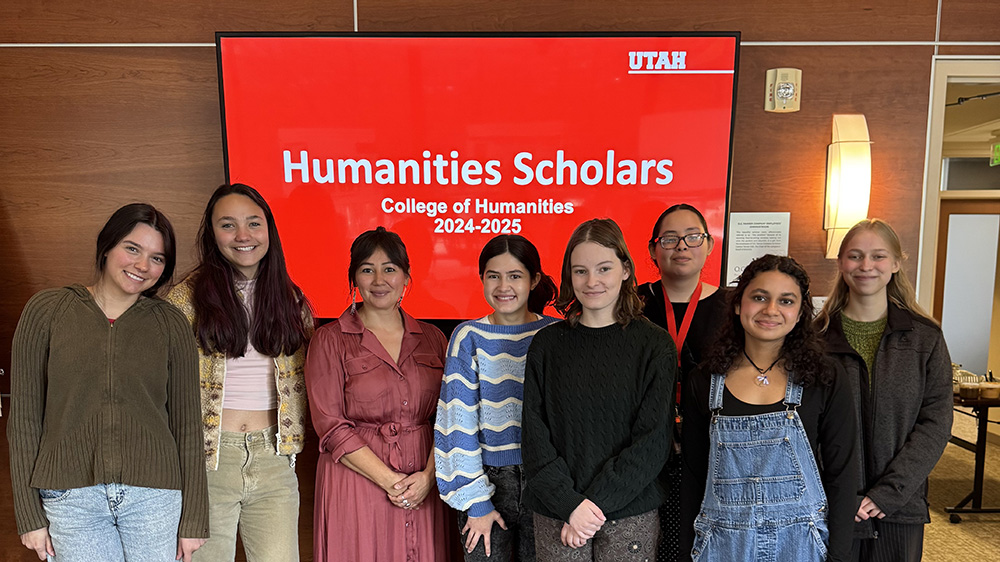
Students have worked for months with faculty mentors and each other as they have completed their first research experiences at the University of Utah. The research ranges in topics that are timely and interesting to undergraduate students. For some of the students, this will be the spark that helps them engage in research for multiple years to come. It is rare for students to have had this kind of hands-on research experience in year one.
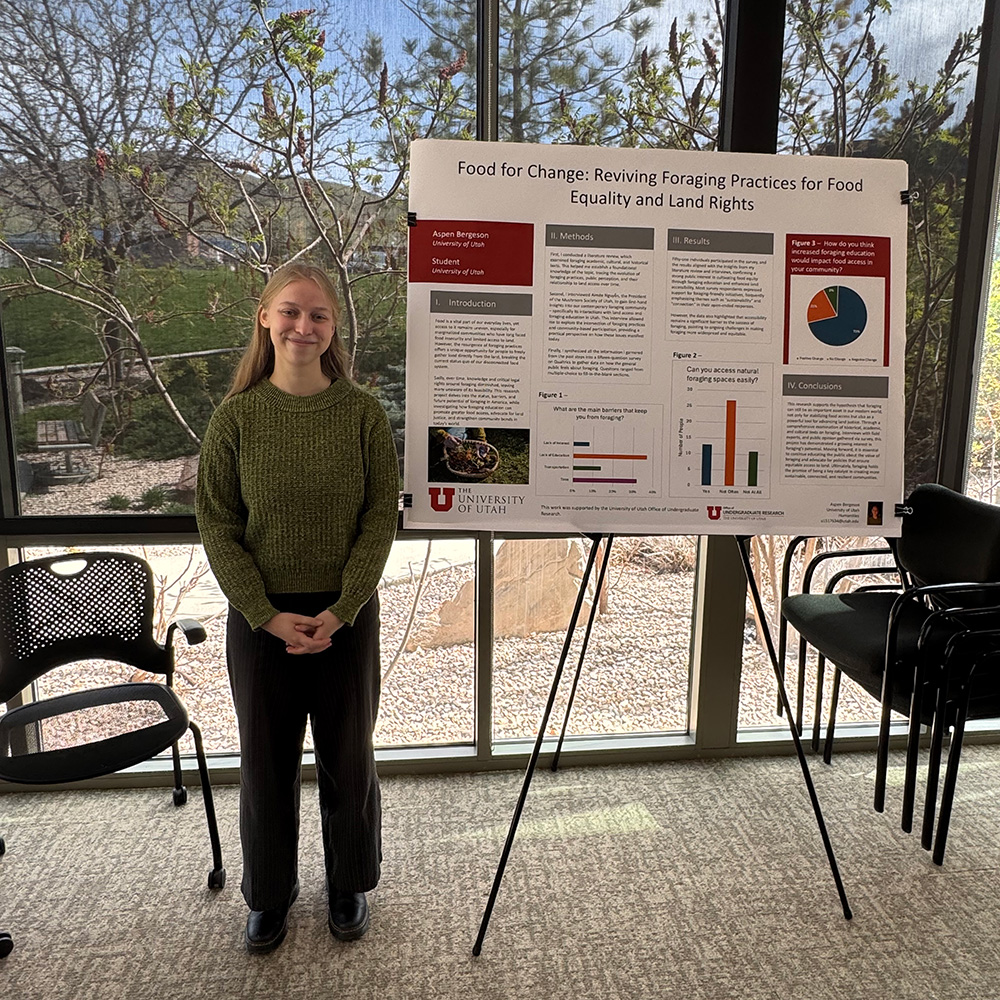
“By educating ourselves and communicating with others about the role of foraging in our country's past, we can dismantle unethical food consumption, advance land access movements, and advocate for greater cultural awareness. Hopefully, I can use what knowledge I have gained about writing and rhetoric to change —even if in a small way— people's opinions of foraging and cement the benefits of its practice in their minds.”
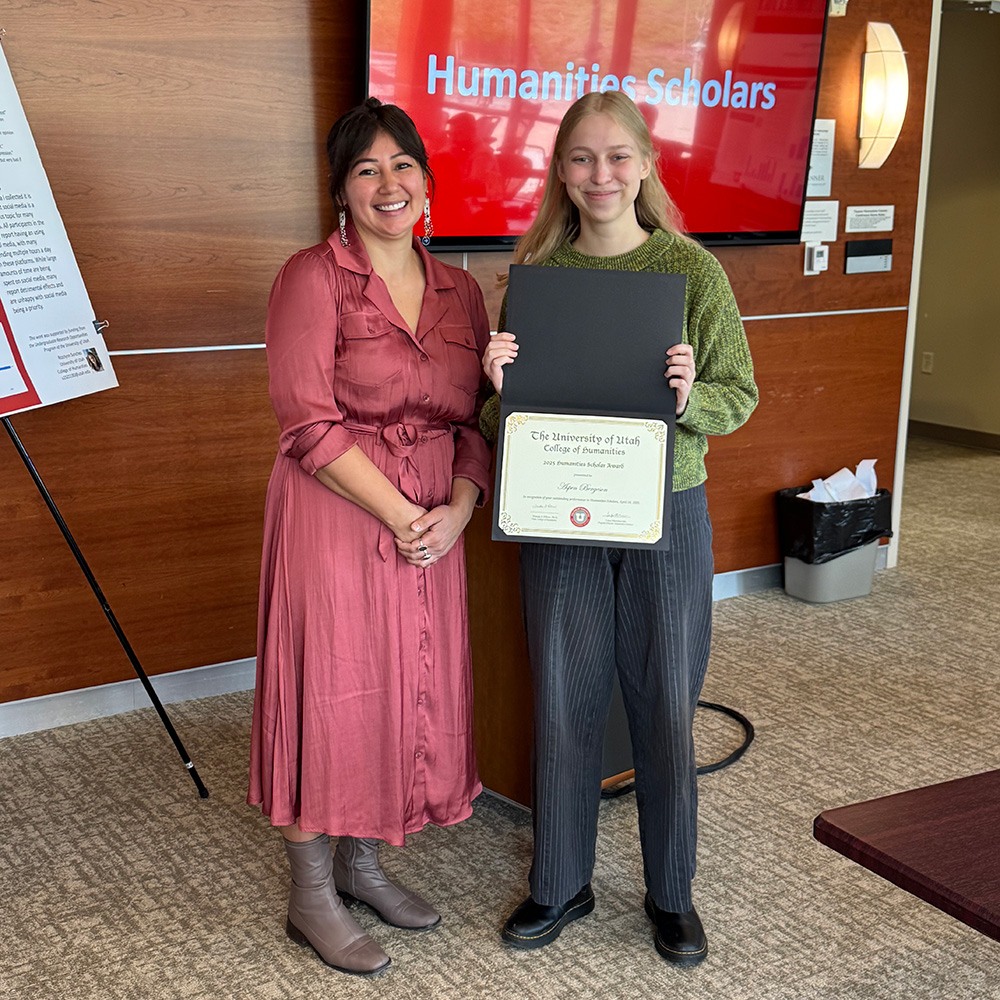
Aspen Bergson (Biology BS)
Project:The History of Foraging and Land Rights in Utah
Mentors: Tara Quinn (Communication) and Lepa Marinkovski (English)
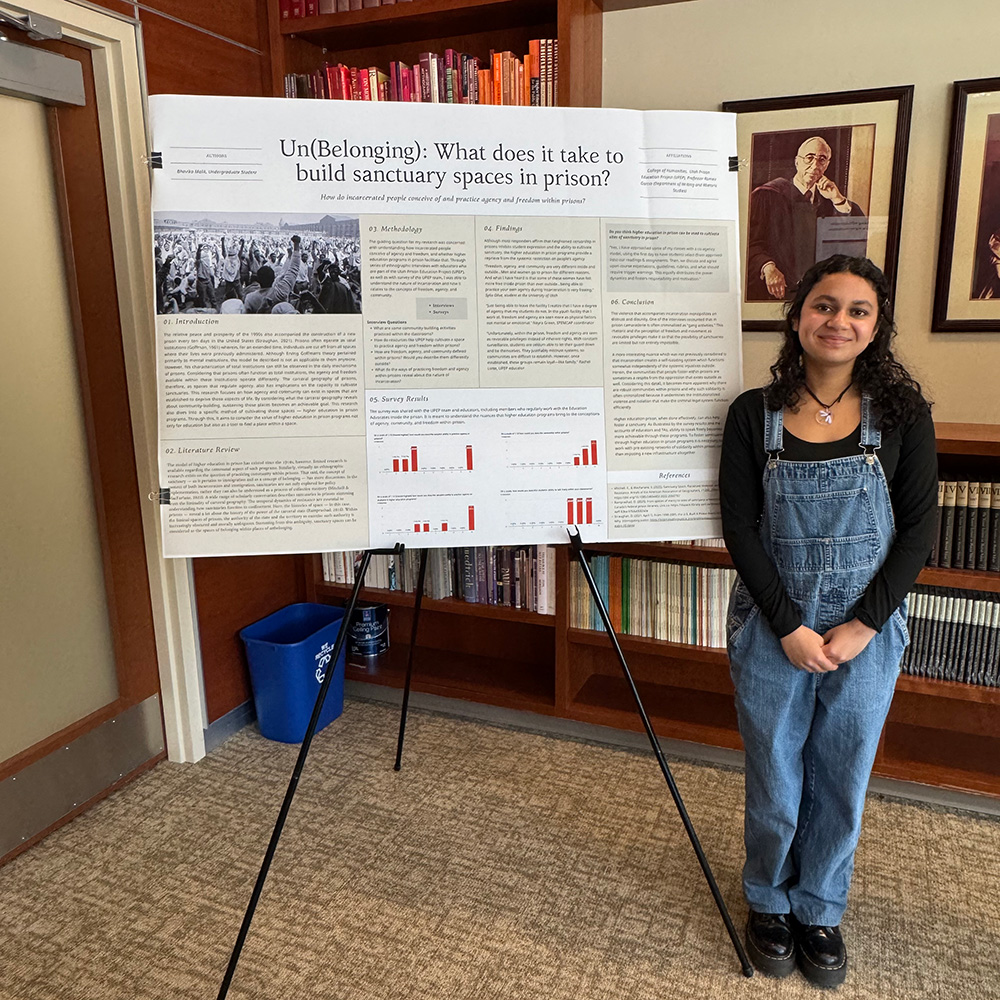
“With help from Professor Garcia, I mapped out some of the methods and potential interviewees for my research. We decided on the who, what, why, and how of the research. Additionally, we went over some of the important researchers for my work such as Sally Benson and Wendy Henshaw. A key aspect of ethnographic research, as I know now, is to create a narrative that captures the data as well as the stories. My narrative is focused on agency, sanctuary, and community building. All the planning in the last class helped alleviate some of the anxieties I had about starting my project from scratch. Through my discussion with my mentor, I realized that I am not in fact starting from scratch. There is a breadth of knowledge that I can turn to that comes from my own experiences.”
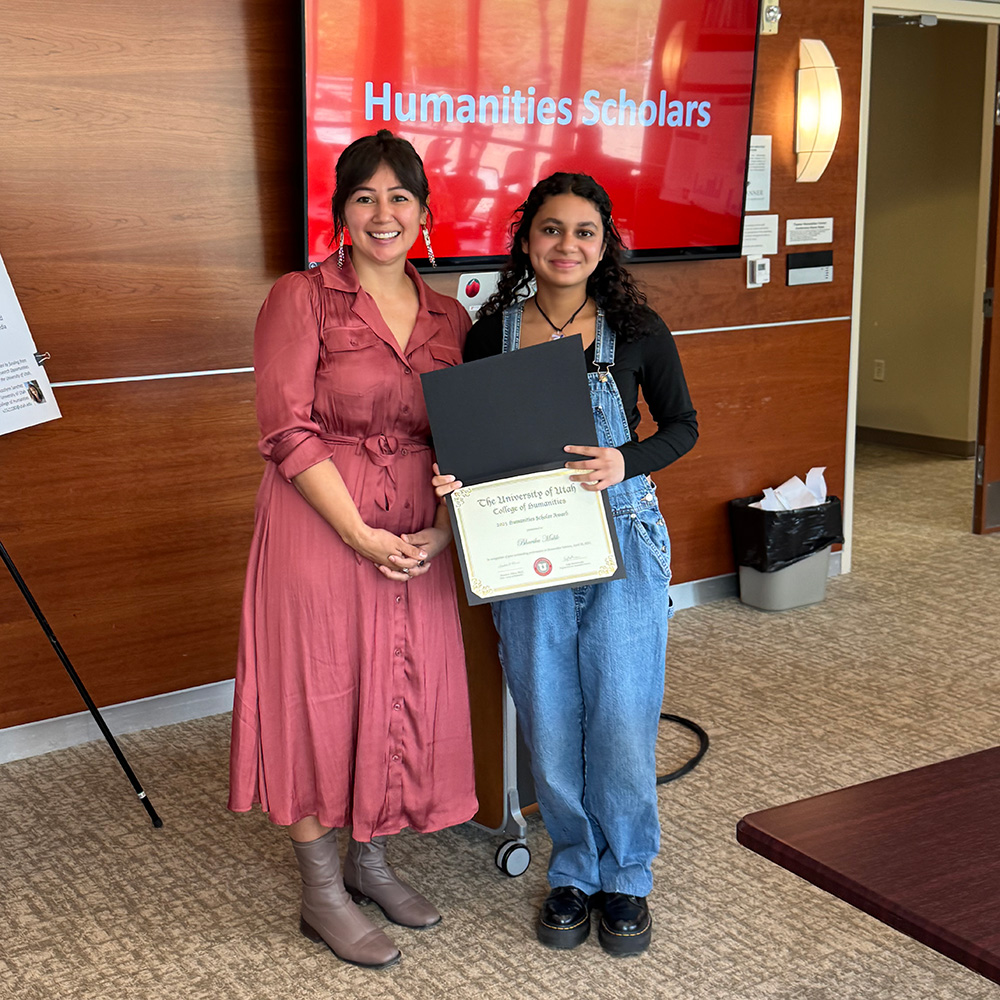
Bhavika Malik (International Studies HBS)
Project:(Un)Belonging, Mapping Ethnographies of Sanctuaries in Prison
Mentors: Romeo Garcia (Writing and Rhetoric Studies) and Lepa Marinkovski (English)
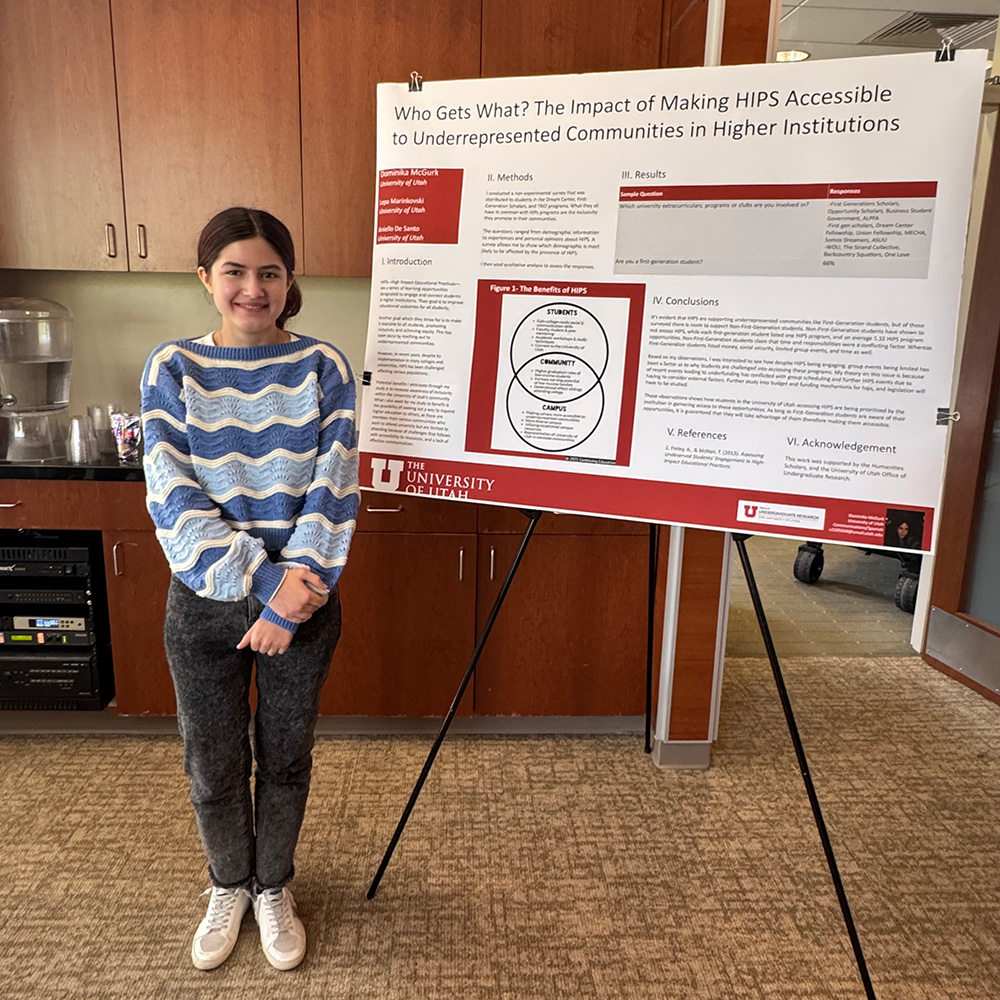
“What I want to get out of this project in this aspect is to see how different cultures interact and perceive HIPS (High Impact Practices) in order to ultimately shape these programs. If there is one thing that I do want to learn out of my research findings, it is how to further expand HIPS by making it more accessible to underrepresented students. As well as bringing awareness to them as well considering because on occasion, administrations from higher institutions fail to recognize or acknowledge these resources students from these communities are dependent on.”
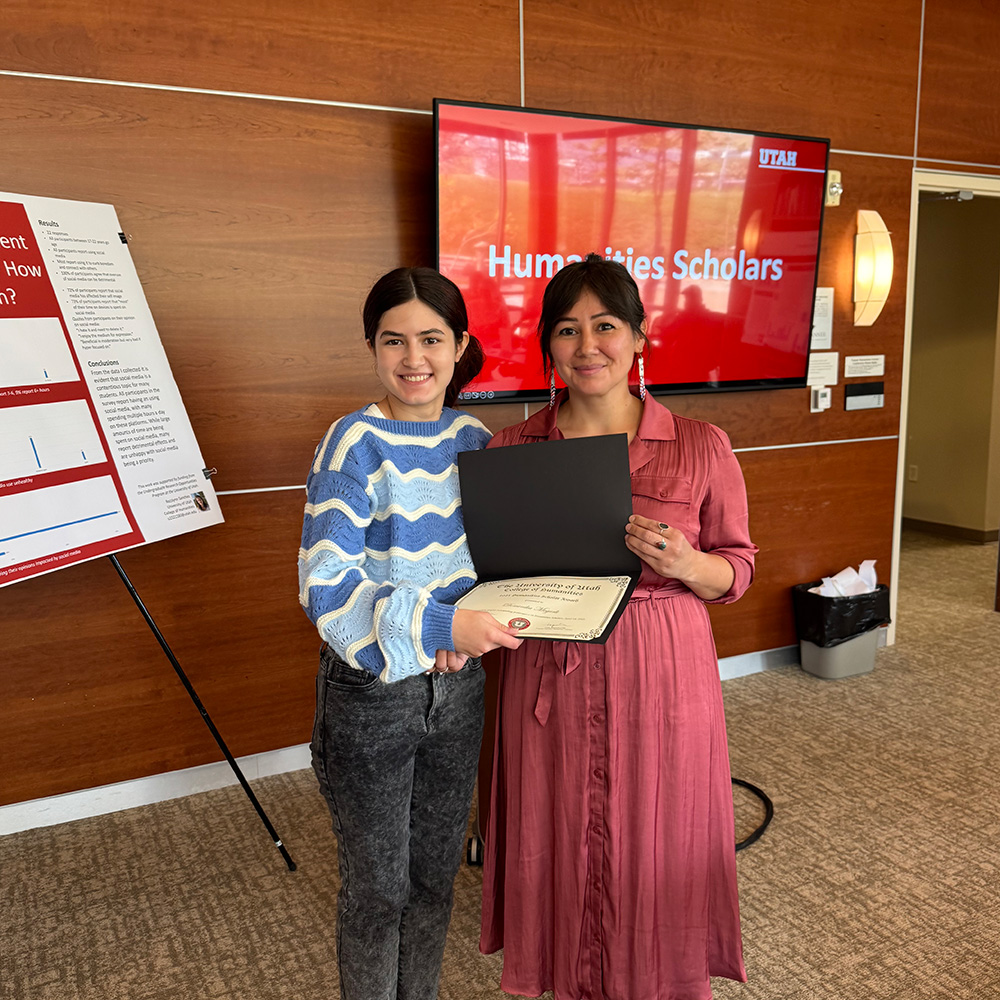
Dominika McGurk (Communication BA & Spanish BA)
Project:Who Gets What?: The Impact HIPS Accessible to Underrepresented Communities Within Higher Institutions
Mentors: Aniello De Santo (Linguistics) and Lepa Marinkovski (English)
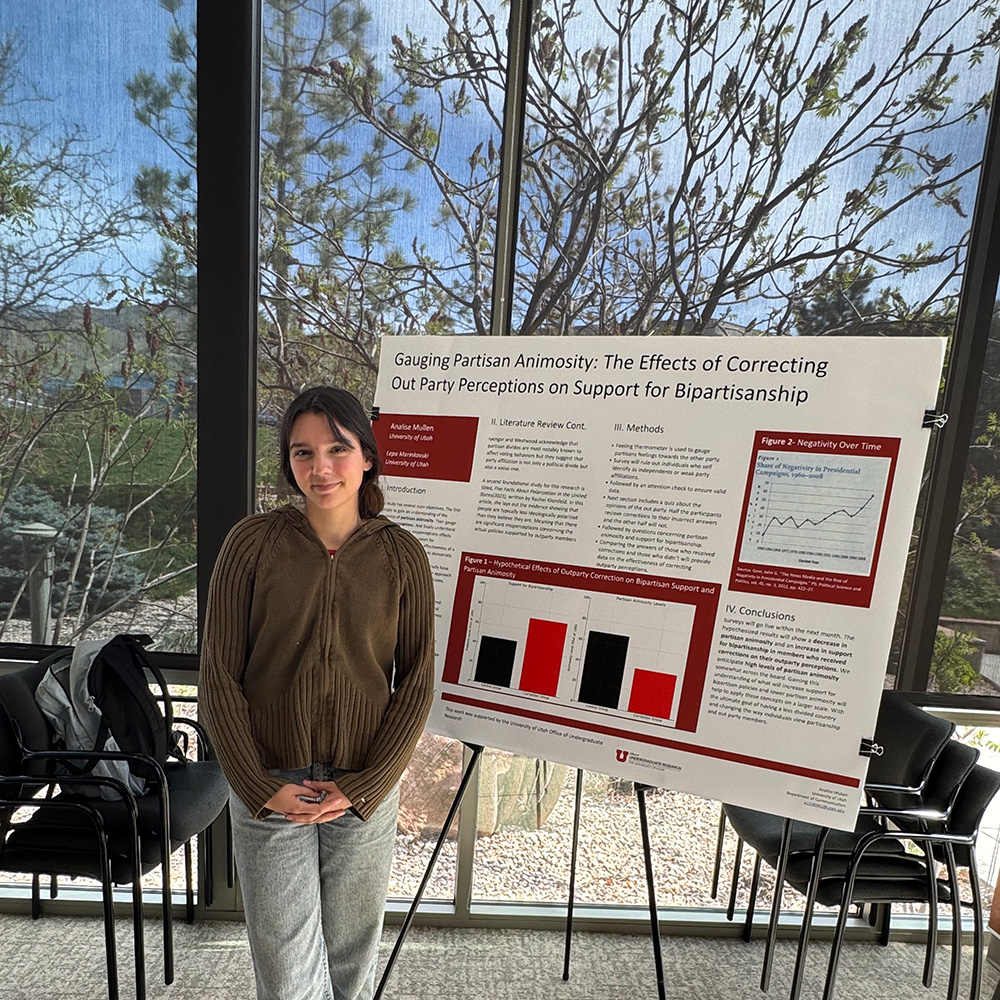
“It is clear and evident that people who can agree on so much policy achieve nothing by being antagonistic to the opposing party. It is generally agreed upon that compromise and bipartisan support is needed to make any significant progress in Congress, so why is it that people are fueled with so much anger and distaste for those who don’t identify with their same party? Additionally, why are these issues seemingly worsening? Many of these questions can be explained, at least partially by viewing politics through a social lens.”
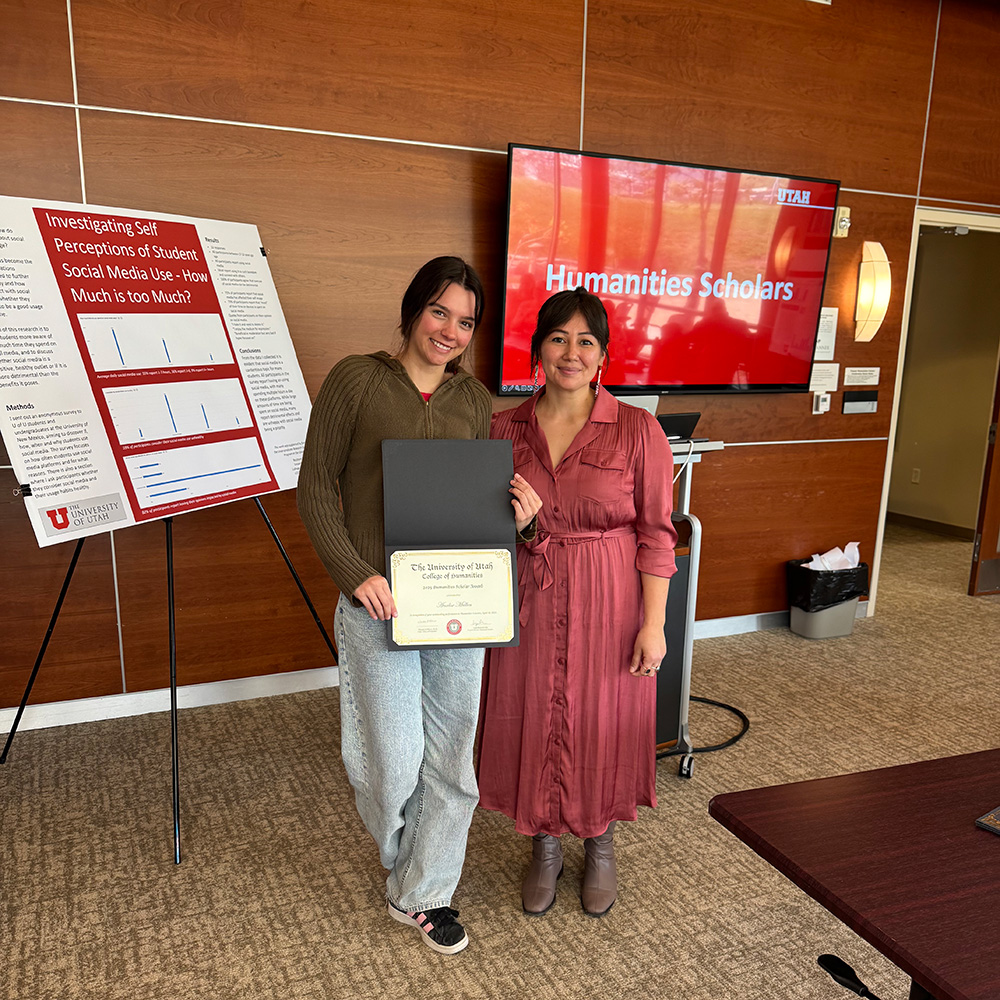
Analise Mullen (English BS)
Project:Gauging Partisan Animosity: The Effects of Correcting Out Party Perceptions on Support for Bipartisanship
Mentors: Ben Lyons (Communication) and Lepa Marinkovski (English)
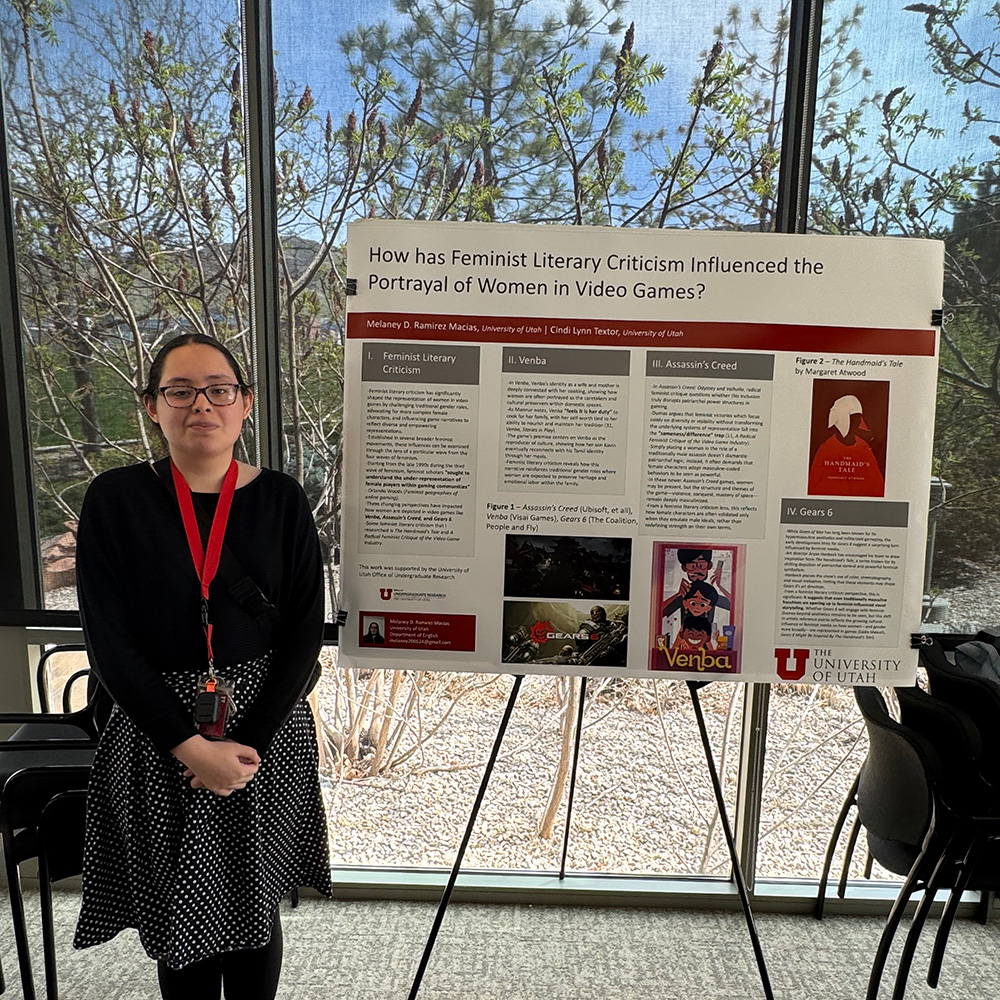
“During my talk with my mentor, I decided to change up my research question to better fit what I want to do. It will still remain with the disciplinary lens of literature and feminism. I may no longer be looking into “How has feminist literary criticism influenced the portrayal of women in contemporary literature?” but instead ‘How has feminist literary criticism influenced the portrayal of women in video games?’”
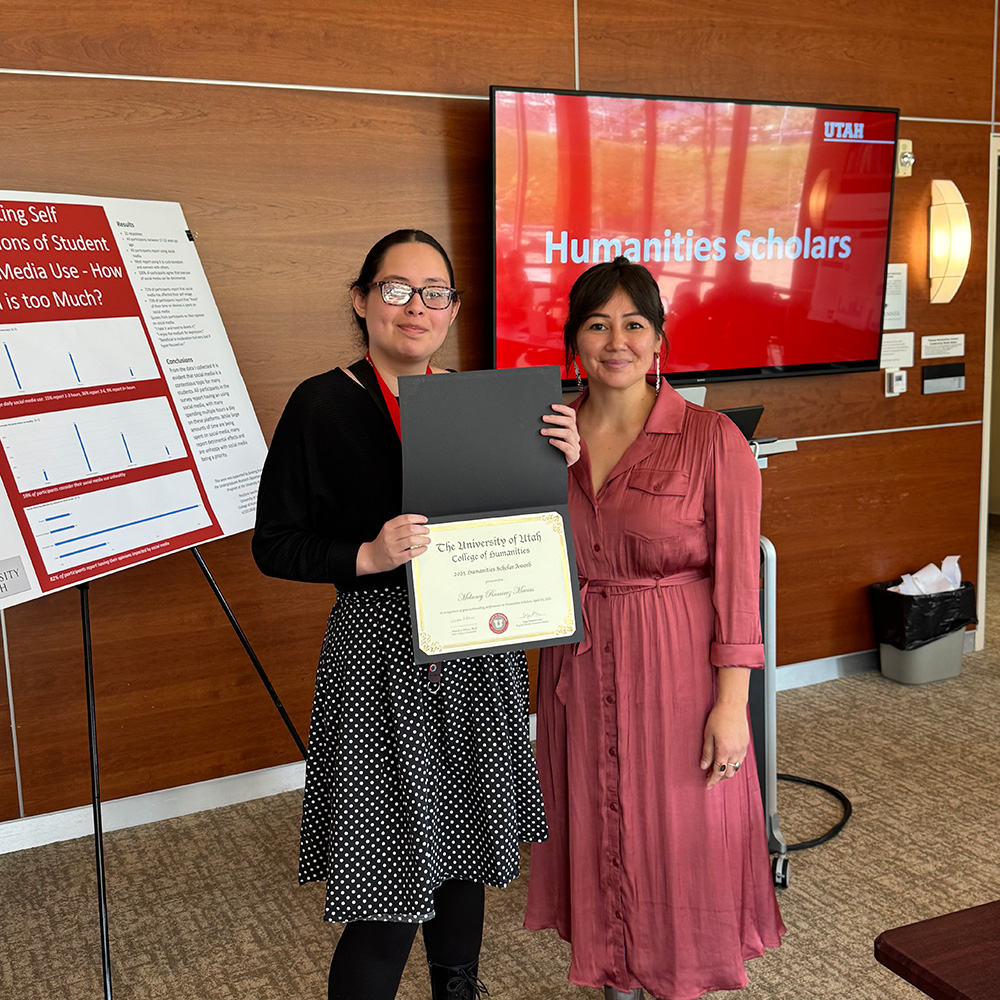
Melaney D. Ramirez Macias (English BS)
Project:How Has Feminist Literary Criticism Influenced the Portrayal of Women in Video Games?
Mentors: Cindi Lynn Textor (World Languages and Cultures) and Lepa Marinkovski (English)
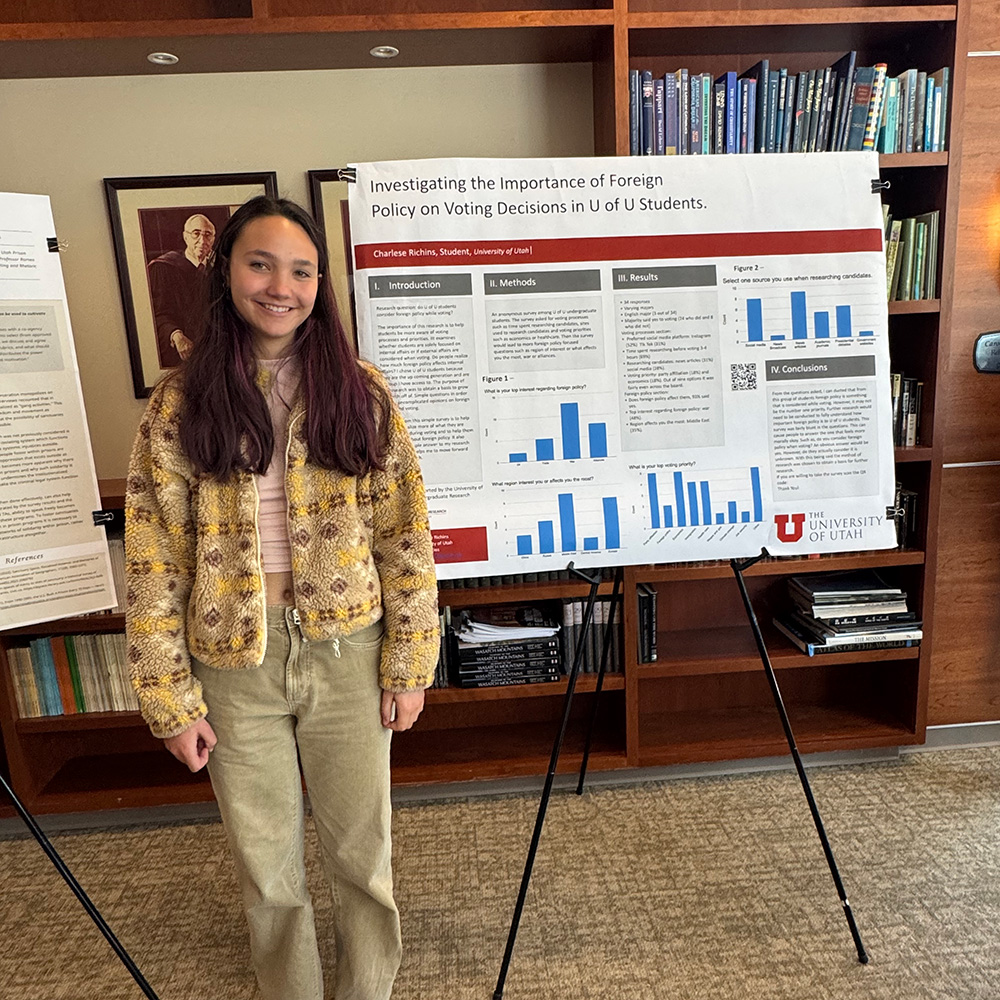
“Last Friday we got to talk to our mentors. Which for me was very helpful in deciding what direction I was going with my project. I narrowed my research question down the night before in order to be able to do proper research in the time frame I have. My new research question is if University of Utah students think foreign policy is important while voting. My mentor helped narrow down where to do my survey and interviews to the University of Utah because that will be easiest. I also have mockup survey and interview questions that I have written, and just need to finalize.”
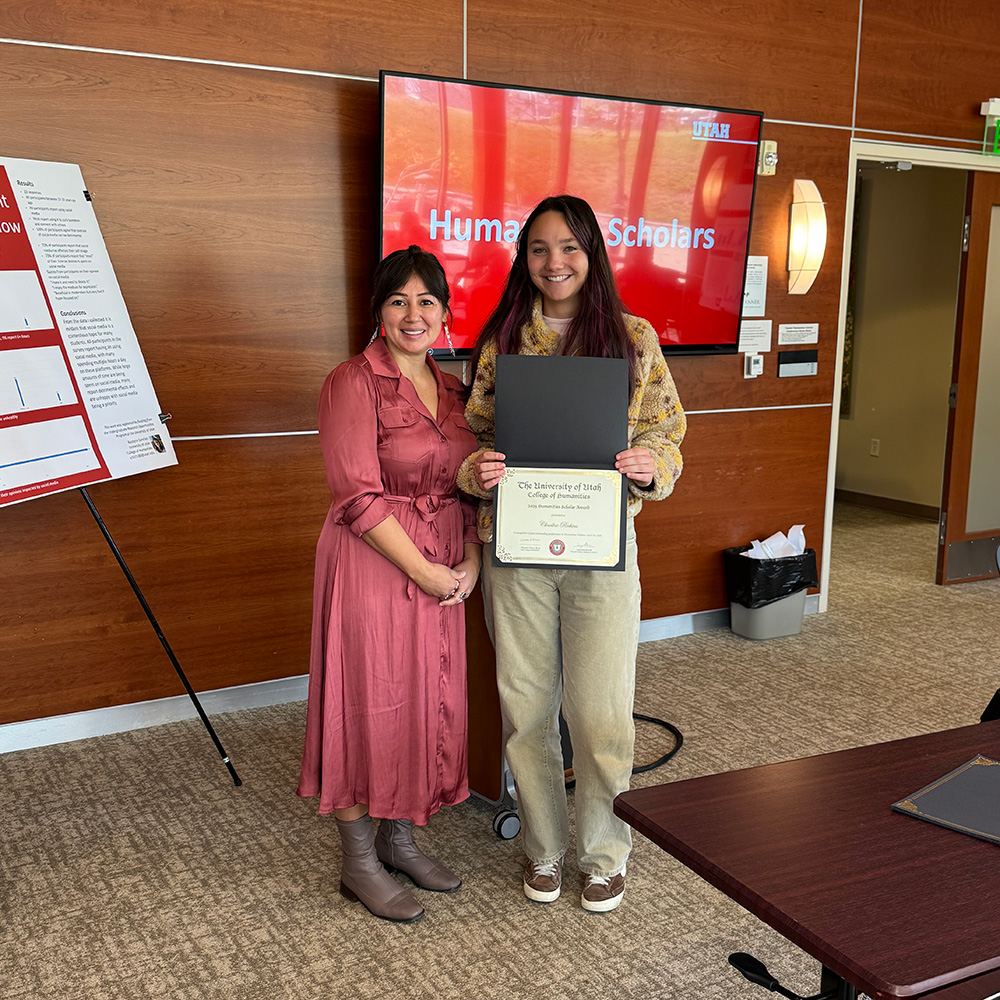
Charlese Richins (History BA)
Project:Investigating the Importance of Foreign Policies on Voting Decisions in U of U Students
Mentors: Daniela Samur (History) and Lepa Marinkovski (English)
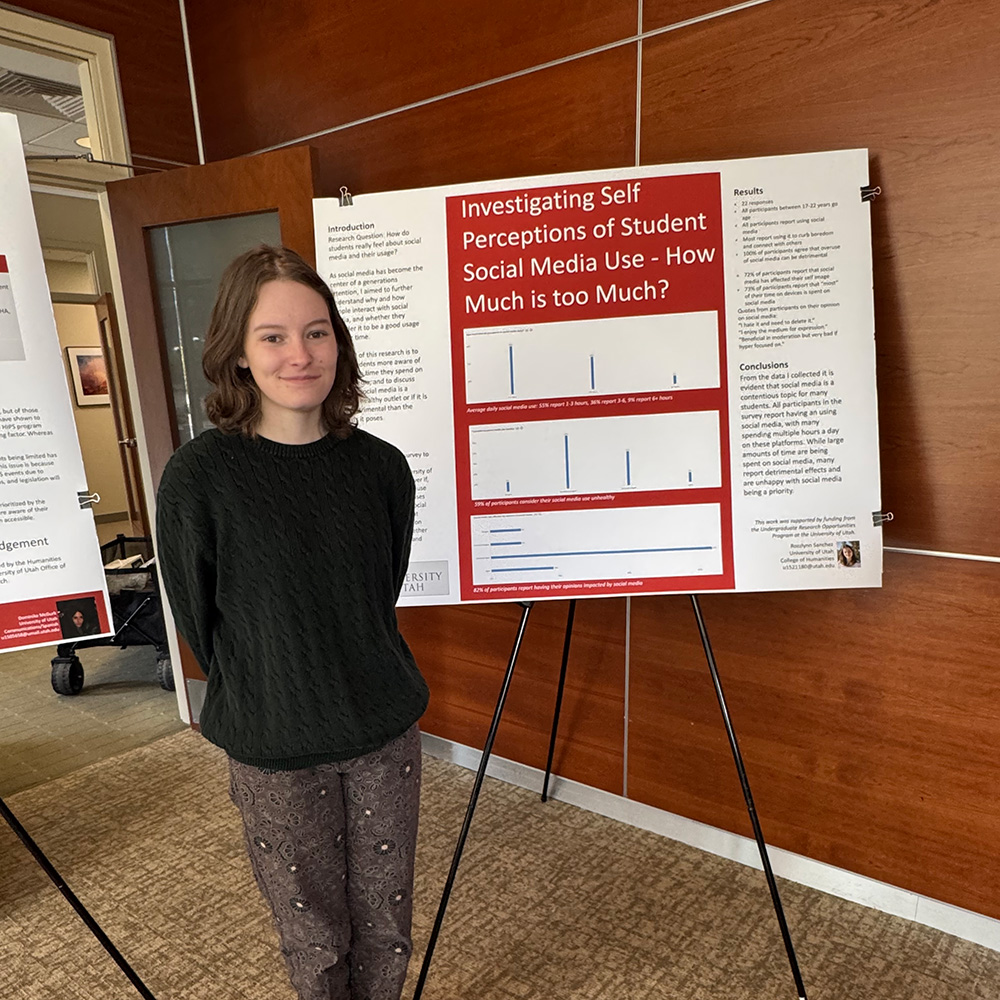
“As I have further considered the research, I will be doing this semester I have decided to shift my research question itself, however I will be sticking to a disciplinary focus on philosophy. Originally, I planned to research how social media affects views on the environment, and in that state the question is unanswerable. As I considered what niche to focus on, I kept returning to a more basic question: before social media affects our views on certain things, how does it affect just us? From there I realized a question better suited to the research I want to do is this: At what point does overuse of social media become an addiction?”
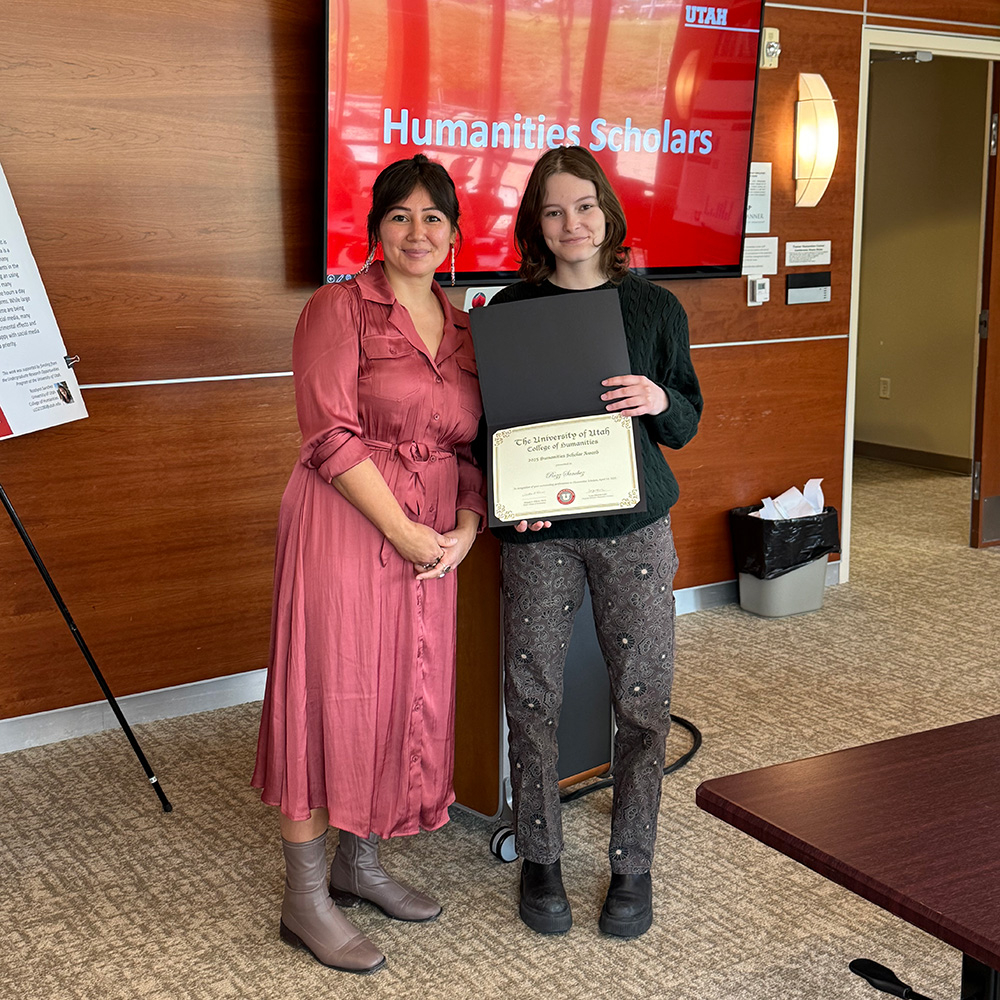
Rozz Sanchez (Communication BS)
Project:Investigating Self Perceptions of Student Social Media Use – How Much is too Much?
Mentors: Lindsey Drager (English) and Lepa Marinkovski (English)
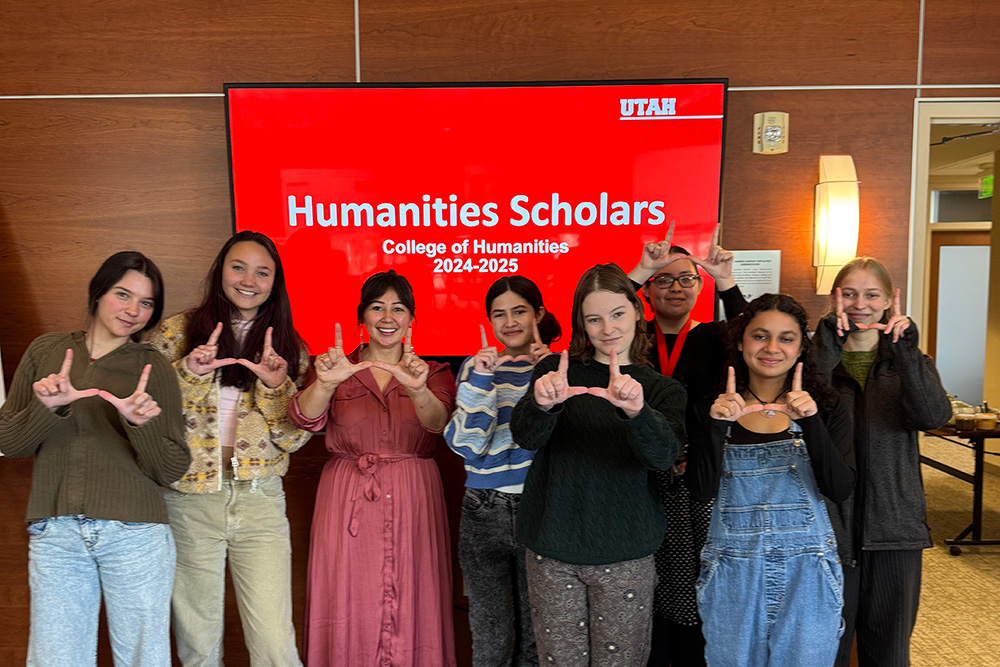
The Humanities Scholars program is more than just an academic experience—it's a journey of self-discovery and community connection. Prospective students are invited to join and become part of this transformative first-year cohort.
